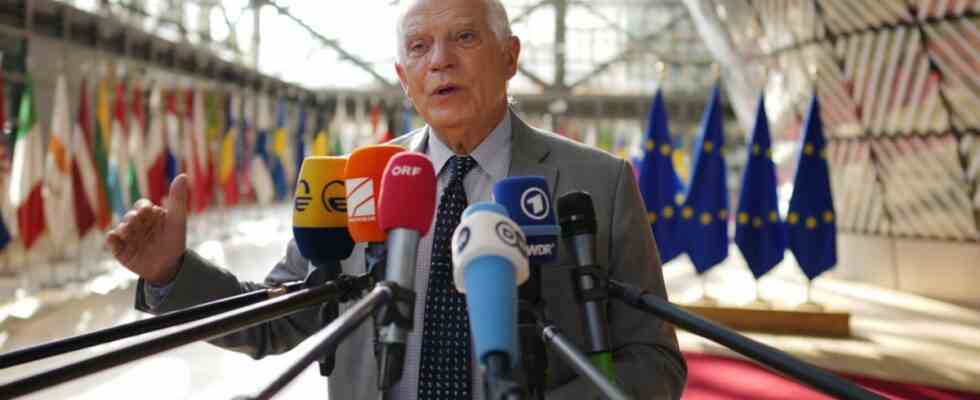Josep Borrell, the European Union’s foreign policy chief, is a man of open words. It remains to be seen whether that is a good quality for a chief diplomat in the EU, but at least there was no need to ask long on Monday how united the EU was in the conflict with Vladimir Putin. He said it himself before he left for the meeting of foreign ministers: not very well anymore.
There is a “big debate” about whether the sanctions against Russia were really effective and whether they didn’t hurt Europe more than Russia, Borrell said. “Some leaders” believe the sanctions were a mistake. For example, the claim is being spread that the oil embargo decided by the EU has led to oil prices rising and Putin’s coffers ringing. Wrong, said Borrell, oil prices are back to pre-war levels. The sanctions would severely damage the Russian economy and more should be imposed. Borrell concluded with the appeal: “We must not forget Ukraine.” Does he really fear that Ukraine will be forgotten in Europe?
Borrell left open who his criticism referred to. As usual, the first candidate is Viktor Orbán. According to the dpa news agency, the Hungarian Prime Minister said in a radio program at the end of last week that he initially believed that Europe had only “shot itself in the foot” with the sanctions, but now it is clear that the European economy was shot in the lungs had been, who is now struggling for air.
The seventh package of sanctions will not make much of an impression on either Russia or Ukraine
But apparently the doubts extend beyond Orbán. In view of the looming energy crisis, Austrian Foreign Minister Alexander Schallenberg also spoke of an “increasing debate in Europe about sanctions”. And the German Minister of State Anna Lührmann, representing Foreign Minister Annalena Baerbock, demanded that the Ukraine should now be given a signal that the EU would stand by them in the long term.
The seventh package of sanctions that the EU is currently launching and that was debated in the Foreign Council on Monday will not make much of an impression on either Russia or Ukraine. It provides for an import stop for Russian gold and otherwise some clarifications on previous sanctions. Above all, the EU wants to counteract the impression that it is to blame for the increasing food shortages all over the world. It is Russia that uses food as a “weapon,” Borrell said. However, there is hope for an early agreement with Russia to lift the blockade on Odessa and other ports and allow grain exports, Borrell said. “It’s a matter of life and death.”
As expected, the Foreign Council voted to allocate an additional 500 million euros to supply arms and equipment to the Ukrainian armed forces. This increases the corresponding funds for Ukraine to a total of 2.5 billion euros. A first package of 500 million euros was approved at the end of February, others followed in March, April and May.

